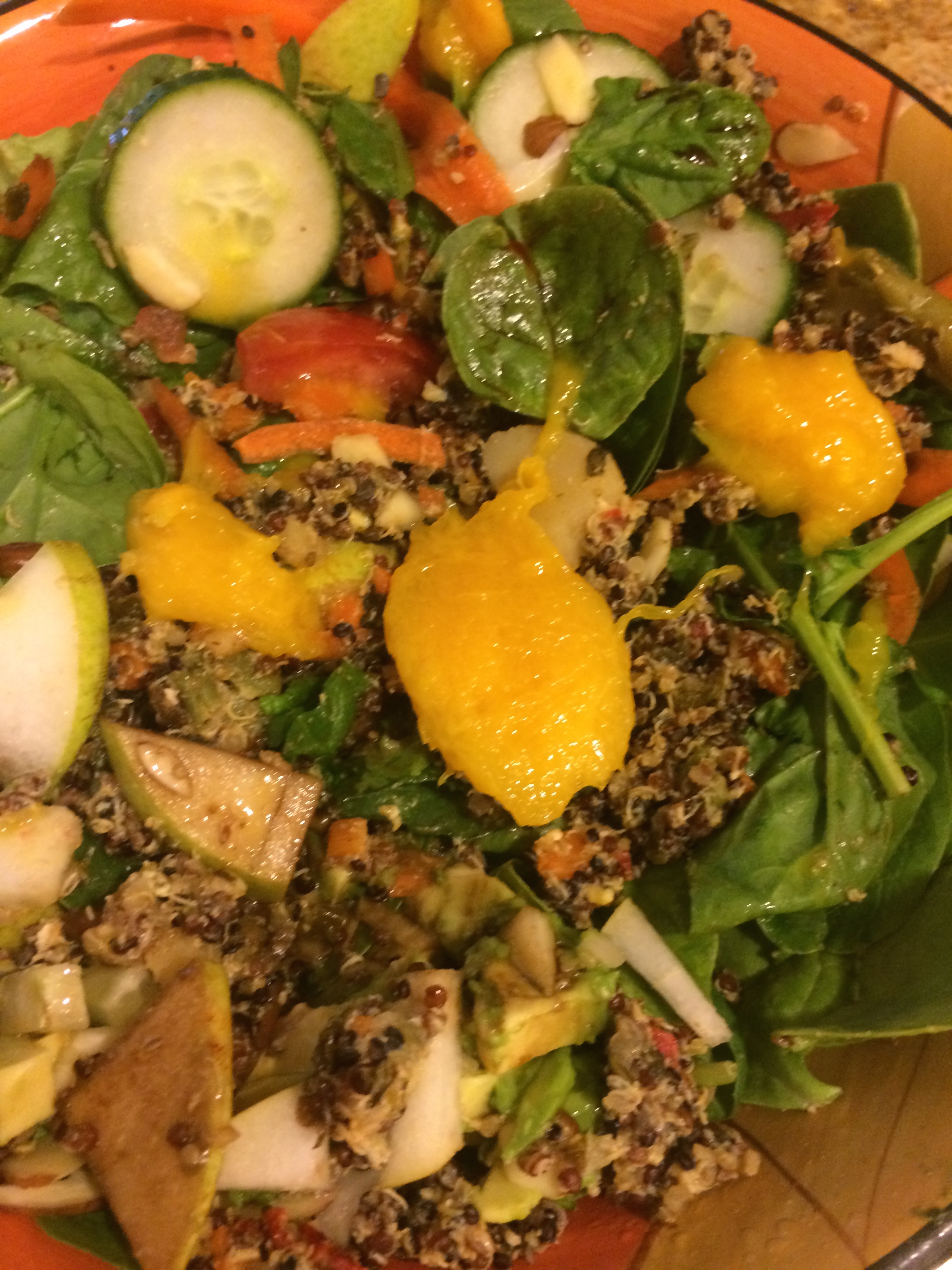My dad and I just came back from the National Speakers Association annual convention. We had a wonderful time and met a lot of fascinating people. I returned home feeling energized, inspired and recharged. Talk about living a healthy lifestyle… there is nothing healthier than feeding your mind and your soul.
During the convention I attended an informational panel in which GJ Hart (California Pizza Kitchen) and Kat Cole (Cinnabon) were interviewed. Kat Cole, the president of Cinnabon, is poised, pretty, well spoken, smart, charming and has a powerful story. It made me mad that a super star like her works for Cinnabon. Imagine if a talented woman like her could grow a healthy restaurant chain!
After the session I just had to question her!!!!

I asked her two questions in which she I confess she gave me great answers. The first question was “How do you stay so skinny eating Cinnabons??” to which her response was that she does eat Cinnabons, but when she’s not treating herself to a Cinnabon, she eats a very strict healthy diet…fruits and veggies….She claims with her its either totally healthy or totally naughty (Cinnabons) but nothing in between.
My second question was “How do you handle running a company like Cinnabon with these healthy, anti-sugar movements that are becoming so popular?”
Her response was…. Cinnabon is totally unhealthy. But they are honest. They do not lie about the ingredients. They don’t try to disguise that they are fattening and bad for you. She suggested that many companies try to cater to healthy eaters by disguising their ingredients and being dishonest and that’s where they get into trouble. If you choose to eat Cinnabon, you have chosen to treat yourself to something that is bad. And that’s a choice you can make. She also added that they have created smaller portion sizes for those who wish to take a bite of the cinnabon without a full splurge.
I thought that was a fantastic answer. You see, I believe we all have a choice. I don’t see anything wrong to have an unhealthy treat once in a while if it is something you would truly enjoy. I choose not to eat Cinnabons ever because it is just too much sugar for me. I would prefer to eat something sweet that I would enjoy more and is healthier. But again that is my choice. As long as your diet focuses on vegetables, fruits, lean proteins and good fats…why shouldn’t you splurge from time to time on a sinful Cinnabon???
But Kat’s answer didn’t appease some of my fellow healthy bloggers/authors. My friend Connie Bennett, author of Sugar Shock! was not pleased with this response and this is why. Processed food companies use sugar, salt and fat to addict us. According to Michael Moss, Pullitzer Prize winning investigative reporter, author of Salt Sugar Fat, food scientists use cutting edge technology to calculate the exact quantities of each of these ingredients to hook us and leave us begging for more.
So if that is the case, then maybe my choice argument is not 100% accurate. If we are so addicted to these foods that we can’t stop eating them, do we have a choice? And if we do manage to break the chains of addiction and stay away from these foods, will an occasional Cinnabon bite send us spiraling down the road of addiction making it oh so difficult for us to stay on track???
And even more thought provoking is what our brains experience through this process. Once we cave to this little treat and the addict within us is reactivated, then to deny more puts us in a state of resistance. That state of resistance causes us much stress. Should we live under a state of distress, constantly flexing the will power muscle to stay healthy? Deepak Chopra, in Super Brain, argues that we are not designed to live in a constant state of resistance and to do so is harmful to our brains and bodies.
Knowing this, are these food companies responsible for our poor food choices? Should they be blamed or do we blame ourselves for caving in to these addictive foods? Do the food companies have a duty to protect us from obesity and disease? Or is this simply a matter of survival of the fittest, every man for himself?
Having explored both sides to this argument I am left confused. I don’t have an exact answer. But one thing I know for sure. Regardless of what the food companies are doing, the best way to keep your ability to choose is through EDUCATION. We need to know what the ingredients are. We need to know what these foods do to our bodies. If we are going to choose, we cannot be ignorant…and if we are, then we never had a choice in the first place.
I would love to know your thoughts about this. Please share.


